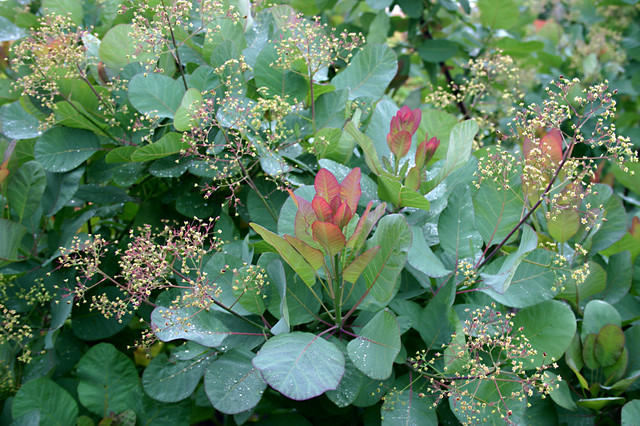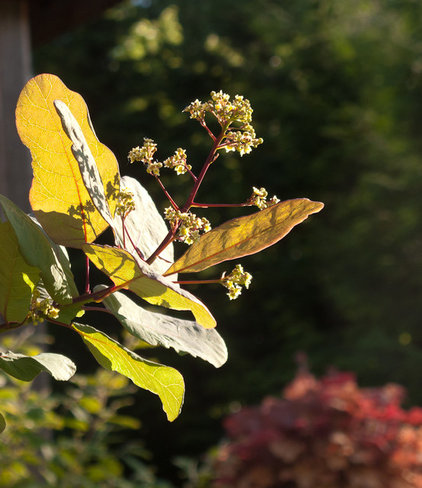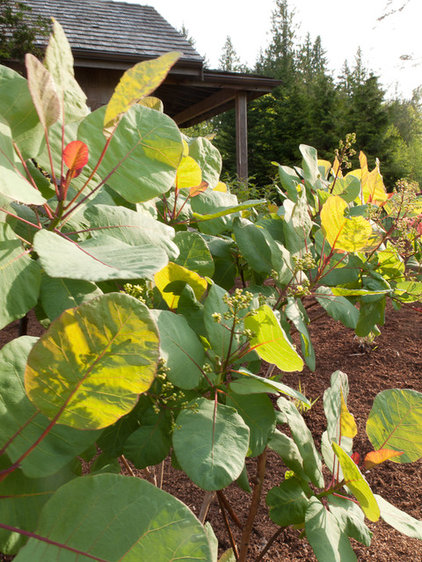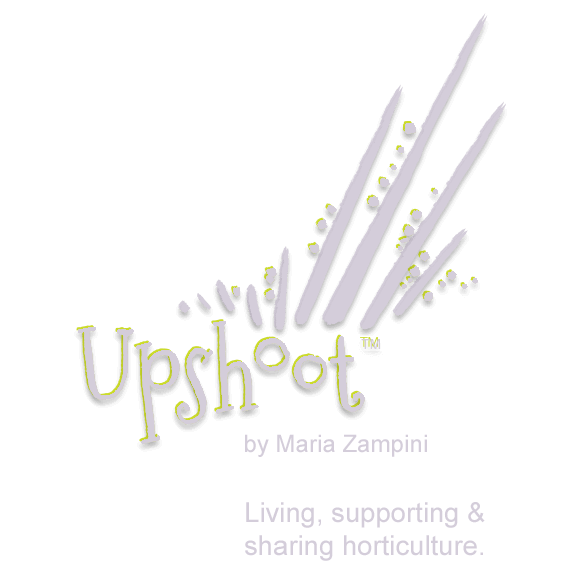<
Guest Blog Post by: Karen Chapman
Balance garden color with this shrub’s cool blue-green foliage, luminous when backlit and sporting yellow-green flowers in spring

Photo provided by Henny Kolster
|
|
Botanical name: Cotinus coggygria ‘Old Fashioned’ Common name: Old Fashioned smoke bush
USDA zones: 5 to 10 (find your zone) Water requirement: Average Light requirement: Full sun or partial shade Mature size: 6 feet tall and 5 feet wide Benefits and tolerances: Cut flowers; drought tolerant when established; said to be deer resistant (although my deer haven’t got the memo) Seasonal interest: Spring, summer and fall When to plant: Spring or fall |
|
Photo provided by Le jardinet
|
|
Caution! Smoke bushes are considered invasive in some parts of the country, although this is not a problem where I live, in the Seattle area. Check with your local cooperative extension office for advice. |

Photo provided by Concept Plants
|
|
Distinguishing traits.
The soft oval leaves open purple before maturing to a cool blue-green, contrasting beautifully with the ruby-red stems and veins. Prolific yellow-green flowers adorn the shrub in spring, while in fall the bush ignites with fiery shades of red, orange and hot pink.
|

The foliage has a luminous quality when backlit by the sun, as you can see in this photograph, so plant it where you can appreciate this.
Although typically purchased for use in the landscape, ‘Old Fashioned’ smoke bush also makes a striking specimen in a container.

If you prefer bolder colors, plant this smoke bush adjacent to a golden locust tree (Robinia pseudoacacia ‘Frisia’), whose chartreuse leaves turn a bright yellow in fall. A skirt of bright orange daylilies (Hemerocallis), like ‘Flasher’, would give an early blast of color, too, and would really stand out against the cool tones of the smoke bush.

Photo provided by Concept Plants
|
|
Planting notes.
All smoke bushes prefer reasonably fertile, moisture-retentive yet well-drained soil. They benefit from an application of balanced fertilizer in spring, although I typically just add a mulch of good-quality compost.
To get larger leaves (although this will sacrifice the flowers), older smoke bushes can be coppiced in spring. When buds begin to break, cut the stems of the smoke bush back to just 2 feet tall. By the end of the summer the shrub will have quickly grown again to 4 feet tall and wide, but the foliage will be even more stunning than usual. Do not coppice very young plants, however. I usually wait until at least their third year in the ground. – Article originally published on Houzz website, May 8, 2013
|
]]>


